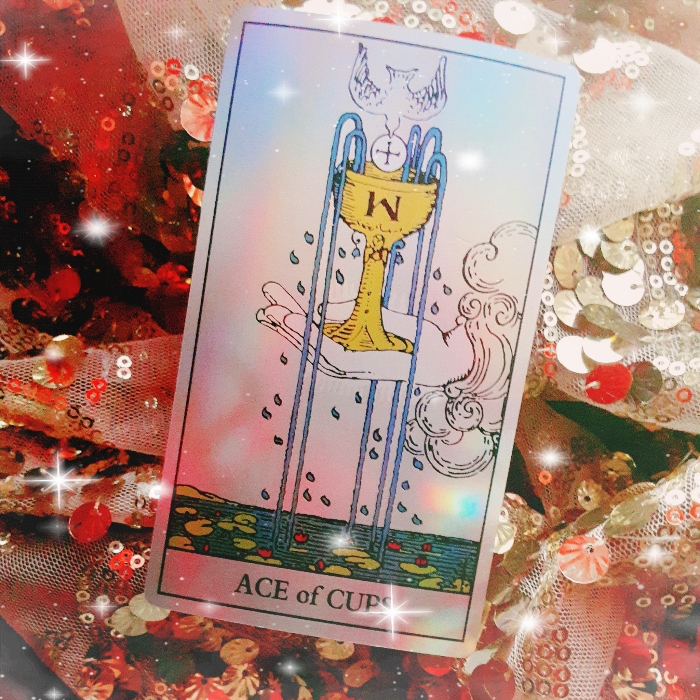The Ace of Cups is the healer’s cup and when we see it, a meditation on compassion’s multiplicitous nature and how we might deploy it effectively is always useful. The basis of compassion is not selflessness but rather desire. It is our own desire to belong, to be seen, heard, loved, and regarded well by others that provokes our compassionate acts. We offer the benefit of our doubt and a belief that others can change because we desire the same for ourselves. Why have we, as a series of modern cultures, been served a tepid version of compassion? Why do we so easily equate compassion to the likeness of a doormat? Why take the mettle, the ferocity, the deep animal urge out of compassion? Why take the potential for humor from this most necessary of qualities?
In Sufi parables we meet a wise fool character known as The Mulla Nasrudin. In one of these parables, Nasrudin is gifted a duck by a visitor and is so grateful for the fowl that he has his chef cook up the bird immediately so he may share it with his generous guest. Soon enough, other visitors arrive claiming to be friends of the man who brought the duck. Ever hospitable, Nasrudin invites them in one by one, ordering up duck soup for each. But visitors continue to arrive, one of whom describes himself as, “A friend of the friend of the friend who brought you the duck.” Nasrudin, of course, would not turn the man away and so ordered him a soup to enjoy during his stay, though the mere broth seemed nothing more than warm water by then. “What sort of soup is this?”, asked the man, to which a somewhat exasperated Nasrudin replied, “That is the soup of the soup of the soup of the duck.”
The basis of compassion is not selflessness but rather desire.
In this story, Nasrudin knows these visitors are not suffering from the true hunger of need and that they may or may not be friends of friends of the guest who gifted the duck, but he invites them to his table all the same and serves them what is available. By the time the duck soup is nothing but water, it is likely in the hands of a man who has already eaten for the day but could not resist getting in on the party that had formed at Nasrudin’s dwelling. Not every drop of our compassion needs to be exactly as those that preceded it. Our compassion need not meet an expectation be it real or imagined, nor wear down our bodies, nor take more than we have to give. The most simple acceptance is deeply powerful medicine and should you have a joke at the ready, the magic most certainly doubles.
May your cup runneth over with the soup of the soup of the soup of the duck.
Michelle Embree
www.michelleembree.com



